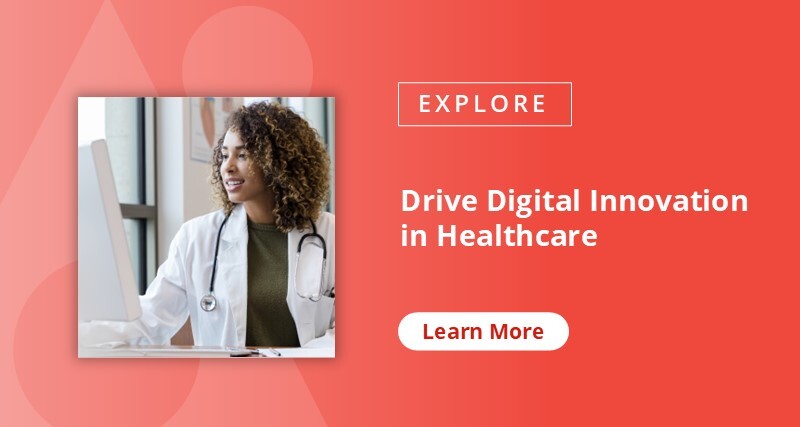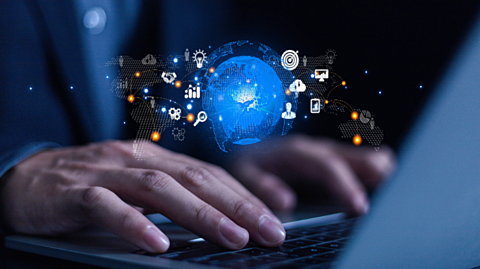Healthcare is increasingly becoming digital: The healthcare IT market in 2024 was at US$360 billion and is forecasted to more than double to US$730 billion by 2029.
In Singapore, the Ministry of Health launched the Industry Transformation Map 2025, which includes a revamp of its healthcare digital applications and platforms to drive healthcare digitalisation and improve research and innovation ecosystems.
The digital transformation in healthcare also extends to administrative processes. Automation of routine tasks, such as appointment scheduling and billing, frees up time for healthcare workers to focus on patient care. Furthermore, data analytics is being used to optimise hospital operations, from managing patient flow to ensuring adequate staffing levels.
The successful implementation of these digital solutions hinges on the continuous education and training of healthcare workers. Healthcare institutions must invest in training programs that equip their staff with the necessary skills to navigate and use these technologies effectively.
A digital learning ecosystem integrates various educational tools and platforms – learning management systems (LMSs), virtual simulations, and interactive modules, among others – to support healthcare professionals in their continuous learning journey.
The Need for Upskilling and Reskilling in Healthcare
According to the World Economic Forum’s The Future of Jobs 2025, 59 of 100 professionals would need reskilling by 2030, also pointing out that care economy jobs, such as those in the healthcare sector, are expected to grow in the next five years.
The rapid pace of digital transformation in healthcare necessitates a focus on upskilling and reskilling professionals. This is essential for maintaining high standards of patient care and ensuring that healthcare systems operate efficiently and effectively.
Upskilling involves enhancing the existing skill set of healthcare professionals to enable them to perform their existing roles more effectively. This could include training on the latest healthcare IT systems, learning how to use new diagnostic tools, or understanding the principles of data analytics to make informed decisions. For example, nurses and doctors might need to learn how to use electronic health records (EHRs) efficiently, or how to interpret data from wearable health devices to monitor patient health remotely.
Reskilling, on the other hand, focuses on learning new skills to adapt to changing job requirements. As digitalisation progresses, new roles are emerging that require a different set of skills. For instance, the rise of telemedicine has created a demand for healthcare professionals who are adept at providing virtual care. Similarly, the integration of AI in healthcare has led to the need for professionals who can work alongside AI systems to enhance diagnostic accuracy and treatment planning.
To support these efforts, healthcare institutions must develop comprehensive training programs that are tailored to the needs of their staff. These programs should be designed to be flexible and accessible, allowing healthcare workers to learn at their own pace and on their own schedule.
By fostering a culture of lifelong learning, continuous education leads to better decision-making, reduced medical errors, and improved patient outcomes. This ensures healthcare professionals provide high-quality care consistently.
Building Components of a Digital Learning Ecosystem
Building a digital learning ecosystem is essential for fostering continuous education and professional development among healthcare workers. This ecosystem should be designed to provide a seamless and integrated learning experience, leveraging various digital tools and platforms to meet the diverse needs of healthcare professionals.
- LMS. This serves as the backbone of the digital learning ecosystem, providing a centralised platform for managing and delivering educational content. It allows healthcare institutions to track learners' progress, assess their performance, and provide personalised learning paths.
- Online courses and webinars. These provide healthcare workers with access to a wide range of educational content, from foundational knowledge to advanced topics. Online courses can be self-paced, allowing learners to progress at their own speed, while webinars offer opportunities for live interaction with experts and peers.
- Virtual simulations. This type of learning offers a safe and controlled environment for healthcare professionals to practice and hone their skills. These simulations can replicate real-life scenarios, enabling learners to apply theoretical knowledge in practical situations without the risk of harming patients.
- Interactive modules. Engage learners through interactive content, such as quizzes, case studies, and multimedia presentations. These modules can be tailored to specific learning objectives and provide immediate feedback to reinforce learning.
- Mobile learning. By enabling healthcare professionals to access educational content on their smartphones and tablets, learning becomes more flexible and convenient. This is particularly beneficial for busy healthcare workers who need to fit learning into their hectic schedules.
- Collaborative learning tools. Discussion forums and virtual study groups facilitate peer-to-peer learning and knowledge sharing. These tools create a sense of community among learners and encourage collaborative problem-solving.

Empowering Healthcare Professionals with AvePoint’s Learning Solutions
AvePoint’s learning solutions are tailored to support the unique needs of healthcare organisations where continuous upskilling, regulatory compliance, and timely knowledge access are essential to building a resilient, future-ready workforce
Here are some key features of AvePoint’s offerings:
- Personalised learning paths. Map learning journeys to defined competencies and skills for both clinical and nonclinical staff. With guidance from process advisory, training is aligned to organisational goals, regulatory standards, and individual development needs.
- Data-driven insights and compliance tracking. Monitor learner progress and training effectiveness with real-time dashboards and analytics, helping organisations stay audit-ready and continuously improve learning outcomes.
By embracing continuous education and leveraging digital learning ecosystems, healthcare organisations can ensure their staff remain at the forefront of medical advancements. This commitment to lifelong learning not only enhances professional skills and knowledge but also significantly improves patient care and healthcare outcomes.
Discover how AvePoint's comprehensive digital learning ecosystem can empower your team and enhance patient care.


